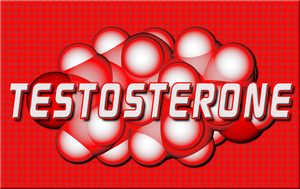Introduction to Urological and Bone Health
Urological health and bone health are two critical aspects of overall well-being that are often overlooked until problems arise. For American males, understanding the intricate link between these two systems can be pivotal in maintaining a healthy lifestyle and preventing serious health issues. This article delves into the relationship between urological and bone health, offering insights and guidance specifically tailored for men.
The Urological System and Its Importance
The urological system, encompassing the kidneys, bladder, ureters, urethra, and male reproductive organs, plays a vital role in filtering waste from the blood and maintaining fluid and electrolyte balance. Issues such as kidney stones, urinary tract infections, and prostate problems can significantly impact a man's quality of life. Moreover, these conditions can have indirect effects on bone health, making it essential to monitor and manage urological health proactively.
Bone Health: A Foundation for Overall Health
Bone health is crucial for mobility, strength, and overall physical function. For American males, maintaining strong bones is essential to prevent conditions like osteoporosis, which can lead to fractures and decreased quality of life. Bone health is influenced by various factors, including diet, exercise, and hormonal balance, all of which can be affected by urological conditions.
The Link Between Urological and Bone Health
One of the most significant connections between urological and bone health is through the kidneys. The kidneys play a crucial role in regulating calcium and phosphate levels, which are essential for bone health. Kidney dysfunction can lead to imbalances in these minerals, increasing the risk of bone diseases such as renal osteodystrophy.
Additionally, certain urological conditions, such as chronic kidney disease (CKD), can lead to secondary hyperparathyroidism. This condition causes the parathyroid glands to produce excess parathyroid hormone, which can lead to bone loss and increased fracture risk. Therefore, managing urological health is not only important for the urinary system but also for maintaining strong bones.
Prostate Health and Bone Density
Prostate health is another critical aspect of urological health that can impact bone density. Prostate cancer, a common concern for American males, often leads to treatments that can affect bone health. For instance, androgen deprivation therapy (ADT), used to treat prostate cancer, can lead to significant bone loss. Men undergoing ADT should be monitored closely for signs of osteoporosis and may require interventions such as calcium and vitamin D supplements or bisphosphonates to maintain bone health.
Preventive Measures and Lifestyle Recommendations
To maintain both urological and bone health, American males should adopt a holistic approach to their lifestyle. Regular exercise, particularly weight-bearing activities, can help strengthen bones and improve overall health. A balanced diet rich in calcium and vitamin D is also crucial for bone health, while staying hydrated can help prevent kidney stones and other urological issues.
Regular check-ups with a healthcare provider are essential for early detection and management of urological conditions. Men should discuss their bone health with their doctors, especially if they have a family history of osteoporosis or are undergoing treatments that may affect bone density.
Conclusion: A Unified Approach to Health
The link between urological and bone health underscores the importance of a unified approach to health management. By understanding and addressing the connections between these systems, American males can take proactive steps to maintain their overall well-being. Regular monitoring, a healthy lifestyle, and open communication with healthcare providers are key to preventing and managing conditions that can affect both urological and bone health.
Contact Us Today For A Free Consultation

- Urological Health Guide: Proactive Care and Common Conditions for American Men [Last Updated On: March 9th, 2025] [Originally Added On: March 9th, 2025]
- Urological Health Guide for American Men: Symptoms, Conditions, and Preventive Care [Last Updated On: March 18th, 2025] [Originally Added On: March 18th, 2025]
- Smoking's Detrimental Effects on Urological Health in American Men: A Comprehensive Overview [Last Updated On: March 19th, 2025] [Originally Added On: March 19th, 2025]
- Genetics and Urological Health in American Men: Prostate Cancer, BPH, Kidney Stones, Infertility [Last Updated On: March 19th, 2025] [Originally Added On: March 19th, 2025]
- Urological Health and Fertility: Conditions, Diagnosis, and Treatment for American Males [Last Updated On: March 19th, 2025] [Originally Added On: March 19th, 2025]
- Cardiovascular and Urological Health: A Vital Connection for American Men's Wellness [Last Updated On: March 19th, 2025] [Originally Added On: March 19th, 2025]
- Urological Infections in American Males: Causes, Prevention, and When to Seek Help [Last Updated On: March 20th, 2025] [Originally Added On: March 20th, 2025]
- Trends and Innovations in Urological Care for American Males [Last Updated On: March 20th, 2025] [Originally Added On: March 20th, 2025]
- Managing Urological Pain in Men: Causes, Diagnosis, and Treatment Options [Last Updated On: March 21st, 2025] [Originally Added On: March 21st, 2025]
- Veterans' Urological Care: Specialized Services and Holistic Health Support [Last Updated On: March 21st, 2025] [Originally Added On: March 21st, 2025]
- Urological Health Strategies for American Men in the Workplace [Last Updated On: March 21st, 2025] [Originally Added On: March 21st, 2025]
- Exercise Regimen for American Men to Boost Urological Health [Last Updated On: March 22nd, 2025] [Originally Added On: March 22nd, 2025]
- Hydration's Role in Enhancing Urological Health for American Males [Last Updated On: March 22nd, 2025] [Originally Added On: March 22nd, 2025]
- Urological Health in Sports: Risks, Prevention, and Performance for American Male Athletes [Last Updated On: March 22nd, 2025] [Originally Added On: March 22nd, 2025]
- Urological Rehabilitation: Enhancing Men's Health and Quality of Life in America [Last Updated On: March 22nd, 2025] [Originally Added On: March 22nd, 2025]
- Urological Health's Psychological Impact on American Males: Breaking the Silence [Last Updated On: March 22nd, 2025] [Originally Added On: March 22nd, 2025]
- Stress Impact on Urological Health in American Males: Management Strategies [Last Updated On: March 22nd, 2025] [Originally Added On: March 22nd, 2025]
- Debunking Urological Myths: Essential Facts for American Men's Health [Last Updated On: March 22nd, 2025] [Originally Added On: March 22nd, 2025]
- Technological Advances Revolutionizing Urological Diagnosis for American Males [Last Updated On: March 23rd, 2025] [Originally Added On: March 23rd, 2025]
- Urological Health and Mental Well-being: A Holistic Approach for American Men [Last Updated On: March 23rd, 2025] [Originally Added On: March 23rd, 2025]
- Navigating Urological Insurance: A Comprehensive Guide for American Men's Health [Last Updated On: March 23rd, 2025] [Originally Added On: March 23rd, 2025]
- Urological Health in American Men: Screenings, Conditions, and Holistic Care [Last Updated On: March 24th, 2025] [Originally Added On: March 24th, 2025]
- Urological Health Education: Vital for American Males' Quality of Life [Last Updated On: March 24th, 2025] [Originally Added On: March 24th, 2025]
- Urological Health Guide for American Males: Best Practices and Preventive Care [Last Updated On: March 24th, 2025] [Originally Added On: March 24th, 2025]
- Urological Health: Enhancing American Men's Quality of Life Through Proactive Care [Last Updated On: March 24th, 2025] [Originally Added On: March 24th, 2025]
- Urological Health and Cancer: Prevention, Detection, and Treatment for American Males [Last Updated On: March 25th, 2025] [Originally Added On: March 25th, 2025]
- Urological Health: Key to Longevity for American Men [Last Updated On: March 25th, 2025] [Originally Added On: March 25th, 2025]
- Managing Urological Health in American Men with Chronic Illnesses: A Comprehensive Guide [Last Updated On: March 25th, 2025] [Originally Added On: March 25th, 2025]
- Supplements for Urological Health: Benefits for American Men [Last Updated On: March 25th, 2025] [Originally Added On: March 25th, 2025]
- Alcohol's Impact on Urological Health: Risks and Management Strategies for Men [Last Updated On: March 25th, 2025] [Originally Added On: March 25th, 2025]
- Urological Health: Vital Screening and Care for Young American Males [Last Updated On: March 25th, 2025] [Originally Added On: March 25th, 2025]
- Managing Urological Health in Men Over 50: Strategies and Insights [Last Updated On: March 25th, 2025] [Originally Added On: March 25th, 2025]
- Urological Health and Skin Care: A Holistic Approach for American Males [Last Updated On: March 25th, 2025] [Originally Added On: March 25th, 2025]
- Urological Health and Mental Well-being: A Holistic Approach for Men [Last Updated On: March 25th, 2025] [Originally Added On: March 25th, 2025]
- Obesity's Impact on Urological Health in American Men: Risks and Management Strategies [Last Updated On: March 26th, 2025] [Originally Added On: March 26th, 2025]
- Environmental Impacts on Urological Health in American Males: Risks and Prevention [Last Updated On: March 26th, 2025] [Originally Added On: March 26th, 2025]
- Urological Health and Immunity: Strategies for American Males [Last Updated On: March 26th, 2025] [Originally Added On: March 26th, 2025]
- Urological Surgery Recovery Guide for U.S. Males: Tips and Strategies [Last Updated On: March 26th, 2025] [Originally Added On: March 26th, 2025]
- Urological Health Guide for American Males: Procedures, Conditions, and Recovery [Last Updated On: March 26th, 2025] [Originally Added On: March 26th, 2025]
- Exercise and Urological Health: Safe Practices for American Males [Last Updated On: March 26th, 2025] [Originally Added On: March 26th, 2025]
- Urological Health and Medications: Effects, Management, and Screening for American Men [Last Updated On: March 26th, 2025] [Originally Added On: March 26th, 2025]
- Urological Health and Sleep: A Vital Connection for American Men [Last Updated On: March 26th, 2025] [Originally Added On: March 26th, 2025]
- Urological Health: Vital for American Men's Wellness and Quality of Life [Last Updated On: March 26th, 2025] [Originally Added On: March 26th, 2025]
- Dietary Guide for Enhancing Urological Health in American Men [Last Updated On: March 26th, 2025] [Originally Added On: March 26th, 2025]
- Urological Health's Impact on Sexual Function in American Men: Education and Awareness [Last Updated On: March 27th, 2025] [Originally Added On: March 27th, 2025]
- Urological Health and Fertility: A Guide for American Males Planning Families [Last Updated On: March 27th, 2025] [Originally Added On: March 27th, 2025]
- Managing Urological Health: Essential Travel Tips for American Men [Last Updated On: March 27th, 2025] [Originally Added On: March 27th, 2025]
- Urological Health's Impact on American Men's Social and Professional Lives [Last Updated On: March 28th, 2025] [Originally Added On: March 28th, 2025]
- Integrating Urological Health into U.S. Men's Health Campaigns: A Vital Step Forward [Last Updated On: March 28th, 2025] [Originally Added On: March 28th, 2025]
- Urological Health and Vision: A Critical Link for American Men's Wellness [Last Updated On: March 29th, 2025] [Originally Added On: March 29th, 2025]
- Urological Health and Hearing Loss: Connections and Risks in American Males [Last Updated On: March 31st, 2025] [Originally Added On: March 31st, 2025]
- Urological Health in American Men: Research, Challenges, and the Need for Action [Last Updated On: April 1st, 2025] [Originally Added On: April 1st, 2025]
- Urological Health: A Vital Focus in U.S. Men's Health Advocacy [Last Updated On: April 2nd, 2025] [Originally Added On: April 2nd, 2025]
- Urological Health Linked to Dental Care: Insights for American Men's Well-being [Last Updated On: April 2nd, 2025] [Originally Added On: April 2nd, 2025]
- Urological and Respiratory Health Nexus: Critical Insights for American Males [Last Updated On: April 4th, 2025] [Originally Added On: April 4th, 2025]
- Urological Health: A Critical Focus for U.S. Men's Health Policy Enhancement [Last Updated On: April 7th, 2025] [Originally Added On: April 7th, 2025]
- Urological and Digestive Health: A Vital Connection for American Males [Last Updated On: April 7th, 2025] [Originally Added On: April 7th, 2025]
- Urological Health Education: Vital for American Men's Well-being and Quality of Life [Last Updated On: April 8th, 2025] [Originally Added On: April 8th, 2025]
- Urological Health's Impact on Men's Career Performance and Well-being [Last Updated On: April 8th, 2025] [Originally Added On: April 8th, 2025]
- Urological and Musculoskeletal Health Link: Insights for American Men's Wellness [Last Updated On: April 8th, 2025] [Originally Added On: April 8th, 2025]
- Urological Health's Impact on American Men and Family Life: A Holistic Approach [Last Updated On: April 9th, 2025] [Originally Added On: April 9th, 2025]
- Urological and Endocrine Health: A Vital Connection for Men's Wellness [Last Updated On: April 10th, 2025] [Originally Added On: April 10th, 2025]
- Urological Health Integration Enhances Men's Health Programs in America [Last Updated On: April 10th, 2025] [Originally Added On: April 10th, 2025]
- Neurological Impacts on Urological Health in American Males: Insights and Management [Last Updated On: April 10th, 2025] [Originally Added On: April 10th, 2025]
- Urological and Cardiovascular Health Links: Guidance for American Men [Last Updated On: April 12th, 2025] [Originally Added On: April 12th, 2025]
- Urological Health: Vital for Men's Well-being and Longevity [Last Updated On: April 13th, 2025] [Originally Added On: April 13th, 2025]
- Urological Health's Crucial Role in Men's Reproductive Well-being [Last Updated On: April 14th, 2025] [Originally Added On: April 14th, 2025]
- Urological Health and Mental Well-being: An Integrated Approach for American Males [Last Updated On: April 15th, 2025] [Originally Added On: April 15th, 2025]
- Urological Health: Vital for Men's Wellness and Longevity in America [Last Updated On: April 15th, 2025] [Originally Added On: April 15th, 2025]
- Urological Health's Impact on American Men's Social Well-being and Life Quality [Last Updated On: April 16th, 2025] [Originally Added On: April 16th, 2025]
- Integrating Urological Health Education into Men's Wellness Programs in America [Last Updated On: April 16th, 2025] [Originally Added On: April 16th, 2025]
- Urological Health and Emotional Well-being: A Holistic Approach for American Men [Last Updated On: April 17th, 2025] [Originally Added On: April 17th, 2025]
- Urological Health's Impact on American Men's Community Engagement: Strategies and Insights [Last Updated On: April 17th, 2025] [Originally Added On: April 17th, 2025]
- Urological Health: Vital for American Males' Overall Wellness and Prevention [Last Updated On: April 18th, 2025] [Originally Added On: April 18th, 2025]
- Urological Health: A Vital Component of Men's Health Initiatives in the U.S. [Last Updated On: April 19th, 2025] [Originally Added On: April 19th, 2025]
- Urological Health and Immunity: A Vital Connection for American Males [Last Updated On: April 19th, 2025] [Originally Added On: April 19th, 2025]
- Urological Health: Essential for American Males' Well-being and Quality of Life [Last Updated On: April 20th, 2025] [Originally Added On: April 20th, 2025]
Word Count: 573





















